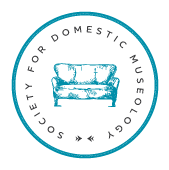I met Dev Aujla last fall when a mutual friend, knowing my penchant for non-traditional libraries, brought me out to visit his collection, currently housed in the Made in New York Media Center in Dumbo. When you walk into the Media Center, it looks like most tech incubators, with modern furnishings and an open floor plan, but if you wind your way to the back corner of the building, there is a corner room, set apart from the rest of the space. Lined with bookshelves, it’s carpeted and has beanbag chairs and a distinctly groovy vibe. It’s a place you want to spend time browsing shelves.
The Sorted Library, as this collection is called, is part library, part social experiment and the beginning of a much grander plan to collect the personal libraries (or facsimiles thereof) of the intellectual and artistic luminaries that Dev admires. Operating from the premise that personal libraries (and how they are organized) operate as a kind of mind map of great thinkers, Dev has started with amassing his own personal collection, inviting users to browse and, in turn create their own connections and collections.
The room holds about 2500 titles, in subject areas ranging from fiction to religion to city planning. The books were selected by Dev and friends, mostly by browsing used book stores, and represent a range of his personal interests. Arranged roughly by subject and author, the collection is fairly fluid as the books are meant to move around the space as the collection is used. This library is meant to promote non-linear thinking, and Dev invites users to browse the collection with a question in mind, seeing which titles speak to that question, and speak to other titles to form a small choir of answers. You can also approach it from a more subconscious perspective, by browsing the collection, pulling out five or six titles that grab you and seeing what they have in common with one another. In stark contrast to the progressive (linear) nature of most research scholarship, The Sorted Library promotes serendipity and creativity in its research process.
Though the Library has been open by individual appointment for several months. Dev and I decided to collaborate on a small event in January (the beginning of a series), whereby we would each invite a small group of people to embark on a browsing session together and share their findings. While wandering a bookstore or library is often a solitary activity, this event was meant to be social, to encourage people to share their collections and ideas and to engage with one another in a kind of peer-to-peer reference relationship. So, one evening, we gathered roughly a dozen folks who we knew would be down with this kind of non-linear happenstance, plied them with wine and cheese and set them free in the reading room.
Each had about half an hour to amass a small collection around an idea. As a helpful guide, the table in the center of the room was covered with the collections of recent researchers, each stating their question and reflecting on the collection they created. One could take an existing question/collection and start a new collection around the same idea (a riff, so to speak), or work on a related idea. At first, I found the tight time frame to be a bit anxiety-inducing, and I developed a kind of browsers block. What was my question?? I had thought of a few before I arrived, but they suddenly lost their appeal. I was deeply curious about what other people were doing. But then I just stopped, took a breath and walked toward the Fiction area. The first book to catch my eye was, Leave it to Me, by Bhartee Mukherjee, an Indian author who died recently and also happened to be the mother-in-law of a friend of mine. According to the summary, the book follows the story of an Indian girl, adopted by an American family, who searches for her birth parents. And there was my question: what does it really mean to be a family? There are so many works of fiction that address this idea, from all angles. And it didn’t take me long to come up with another five titles that loosely deal with this topic:
The Corrections
This is what it means to have a happy marriage
Make your Home among strangers
All Families are Psychotic
Now, out of these titles, I have only read The Corrections and some of Ann Patchett. So connecting these books to my question was based mostly on their titles. But as I was selecting the books, and chatting with others about what I was choosing and what they were choosing, my question really morphed into a meditation on the family as perhaps the richest source of material for Fiction, thinking of other things I’ve read that speak to the idea. But time was up and we started to catalog our collections on cards provided for this purpose. The beauty of the quick dip, so to speak, is that it forces you to act, and then you can decide whether or not to pursue the idea further. I could see spending hours wandering around this small library, forging connections between unlikely titles as a kind of right brain calisthenic.




